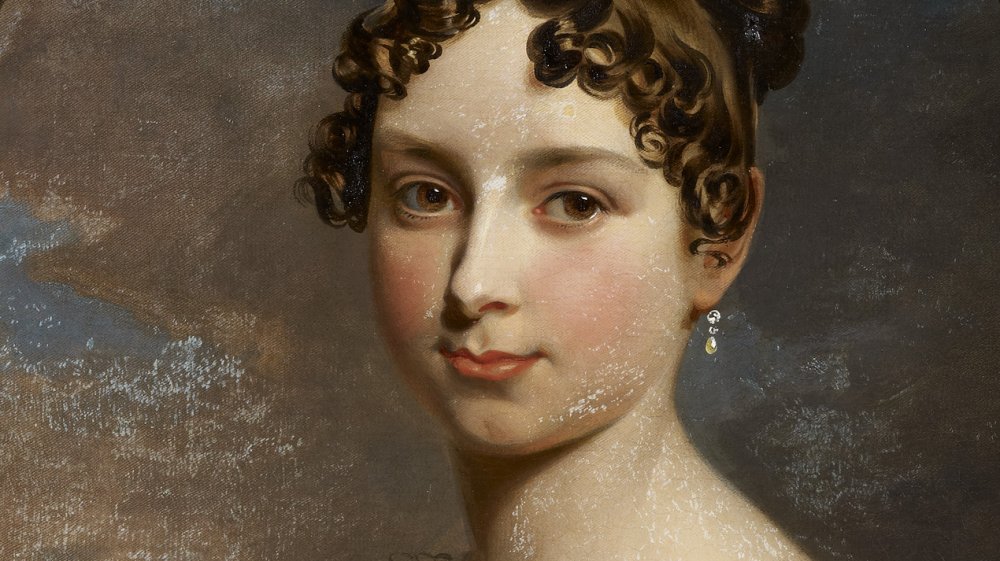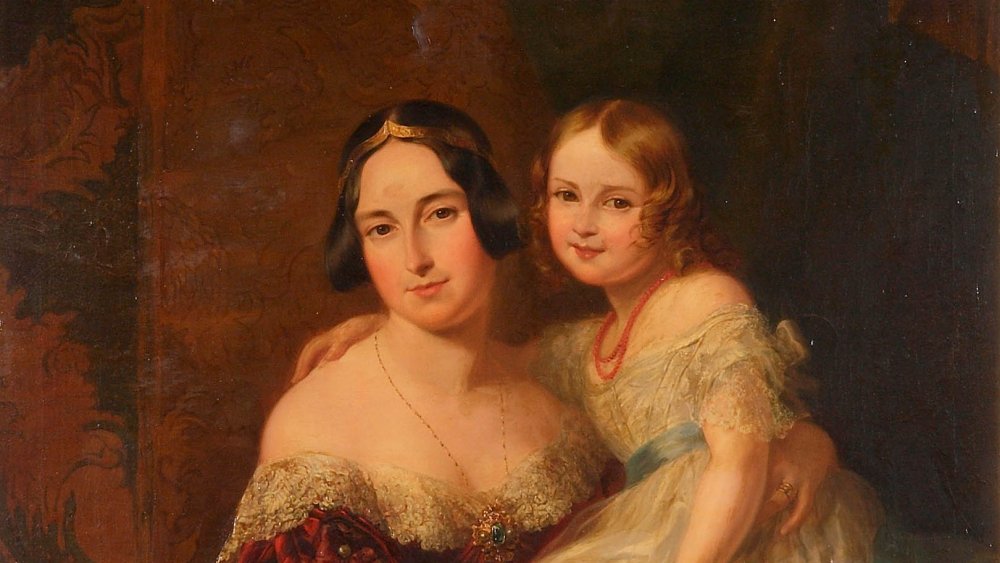Princess Feodora: The Truth About Queen Victoria's Sister
Life is all about perspective. Sure, us plebes probably look at royalty and think "man, it sure would be great if a whole country's economy was structured around making sure I have enough snacks." But royals are people too, albeit people with softer skin and an inability to work a stove on their own. The kingly life isn't for everybody, with its constant demands and unceasing visibility. Some people don't want that. Some people want to eat cereal and watch Pepper Ann reruns. Metaphorically.
That seems to have been the case with Princess Feodora, anyway, who managed to dodge the royal throne by being, blessedly and by the skin of her teeth, born to the wrong dad.
Princess Feodora was not jealous of her sister
Here's what we know about Feodora: she was born in December of 1807 in scenic Amorbach to Emich Carl, 2nd Prince of Leiningen and Victoria of Saxe-Coburg and Saalfeld. She had the same boilerplate Amorbachian upbringing that all proud Amorbachians enjoy until 1814, when her father passed away. Four years later, Feodora's mother remarried, this time to Edward, Duke of Kent, son of George III and man responsible for half of Queen Victoria's genetic makeup.
While Feodora apparently took to her baby half-sister almost immediately, it appears that Victoria was where the list of things Feodora liked about royal life began and ended. According to History of Royal Women, Feodora and Victoria remained in close contact for all of Feodora's life, but only the younger sister ever got the hang of princessory. Feodora's disdain for her lot in life was best exemplified in a letter, where she wrote of life in the palace "I escaped some years of imprisonment which you, my poor dear Sister, had to endure after I was married. Often have I praised God that he sent my dear Ernest for I might have married I don't know whom – merely to get away!" That's how much she hated the pomp of royalty. She married a guy named Ernest to get away from it.
Sadly, Feodora passed away in 1872 shortly after the death of her daughter, and wound up the subject of some of Victoria's seemingly endless series of journal entries about family members who she outlived.

